Innovation
Innovation is the process of creating something new, whether it's a product, service, or idea, that provides value or solves a problem. It involves thinking creatively, taking risks, and implementing new methods or technologies to improve existing processes or create something entirely original. Innovation can occur in various fields including science, technology, business, and the arts.
Key Concepts
- Creativity: Innovation often begins with a spark of creativity, where individuals generate new and imaginative ideas.
- Problem-Solving: Innovators identify and address challenges or unmet needs through their creations.
- Risk-Taking: Innovation involves taking calculated risks to bring new ideas to fruition, even in the face of uncertainty.
- Adaptability: Innovators must be open to change and willing to adapt their approaches as they develop and refine their innovations.
- Impact: Successful innovations have the potential to make a positive impact on society, the environment, and various industries.
Examples of Innovation
There are numerous examples of innovation that have transformed various aspects of our lives. Some notable examples include:
- The invention of the light bulb by Thomas Edison, which revolutionized the way we illuminate our homes and cities.
- The development of the smartphone, which has changed the way we communicate, access information, and conduct business.
- The creation of renewable energy technologies, such as solar panels and wind turbines, to address environmental concerns and reduce reliance on fossil fuels.
- The introduction of 3D printing, which has enabled rapid prototyping and customized manufacturing processes.
Studying Innovation
To understand and study innovation, students can explore the following areas:
- History of Innovation: Learn about key innovators and groundbreaking inventions throughout history.
- Creative Thinking: Develop skills in brainstorming, problem-solving, and thinking outside the box.
- Technology and Invention: Explore how technological advancements have driven innovation in various industries.
- Entrepreneurship and Business Innovation: Understand how innovation contributes to the success of businesses and the economy.
- Social and Environmental Impact: Examine the potential impact of innovative solutions on society and the planet.
By delving into these areas, students can gain a deeper appreciation for the role of innovation in shaping the world around them.
[Innovation] Related Worksheets and Study Guides:
.◂Science Worksheets and Study Guides First Grade. Force and motion
Study Guide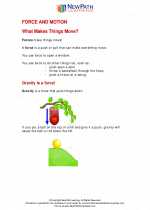 Force and motion
Force and motion  Worksheet/Answer key
Worksheet/Answer key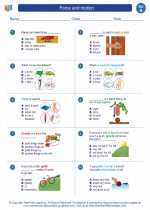 Force and motion
Force and motion  Worksheet/Answer key
Worksheet/Answer key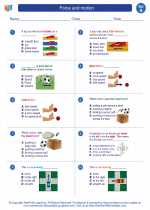 Force and motion
Force and motion  Worksheet/Answer key
Worksheet/Answer key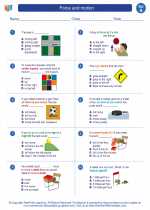 Force and motion
Force and motion  Vocabulary/Answer key
Vocabulary/Answer key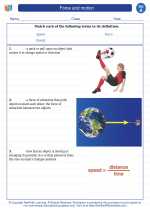 Force and motion
Force and motion 

 Worksheet/Answer key
Worksheet/Answer key
 Worksheet/Answer key
Worksheet/Answer key
 Worksheet/Answer key
Worksheet/Answer key
 Vocabulary/Answer key
Vocabulary/Answer key

The resources above cover the following skills:
Concepts of Physical Science: A student should understand and be able to apply the concepts, models, theories, universal principles, and facts that explain the physical world. A student who meets the content standard should:
Develop an understanding of motions, forces, their characteristics and relationships, and natural forces and their effects.